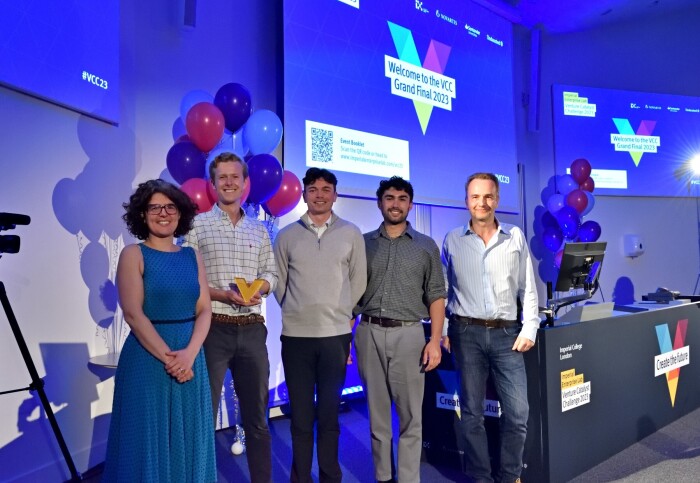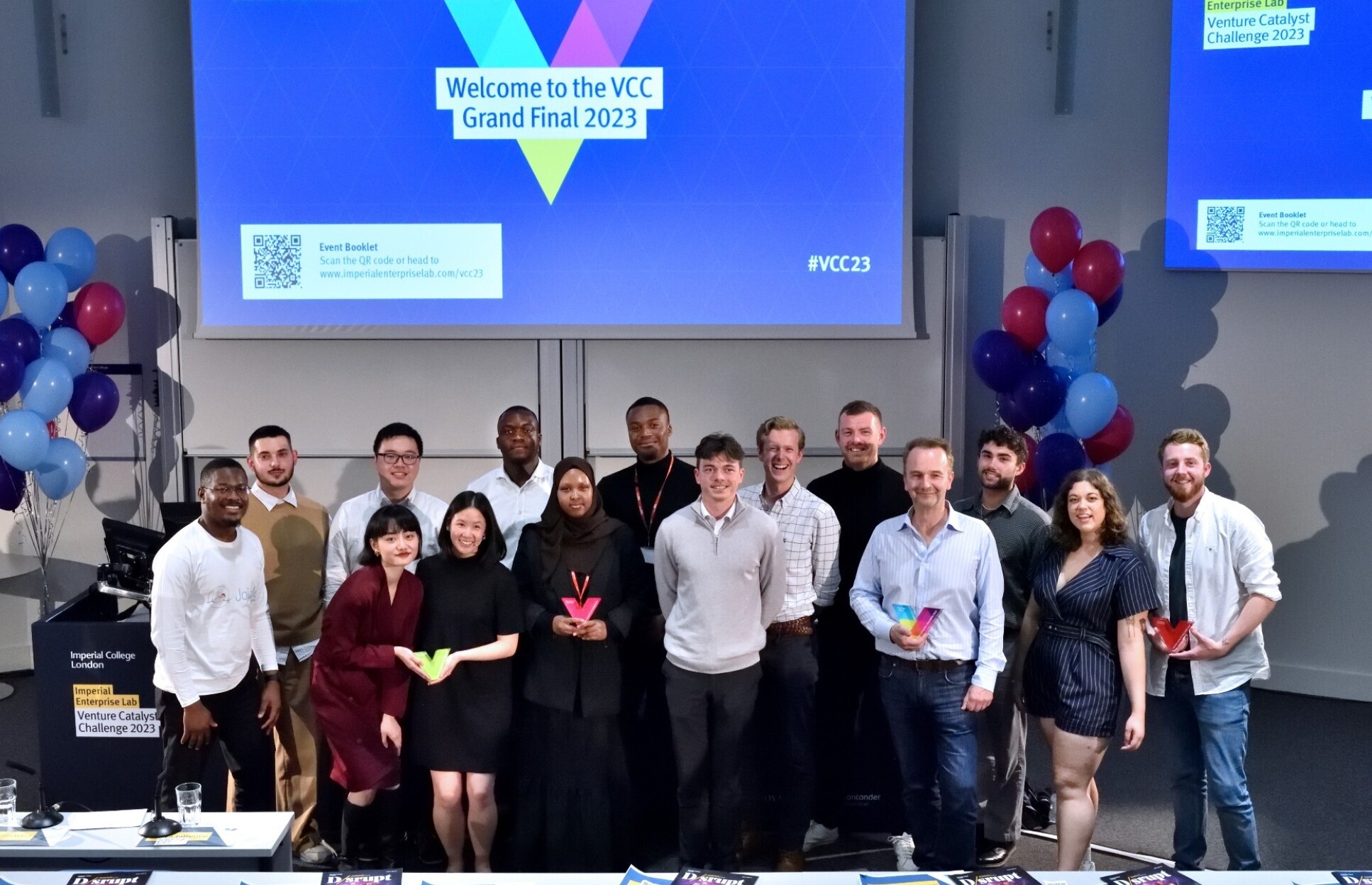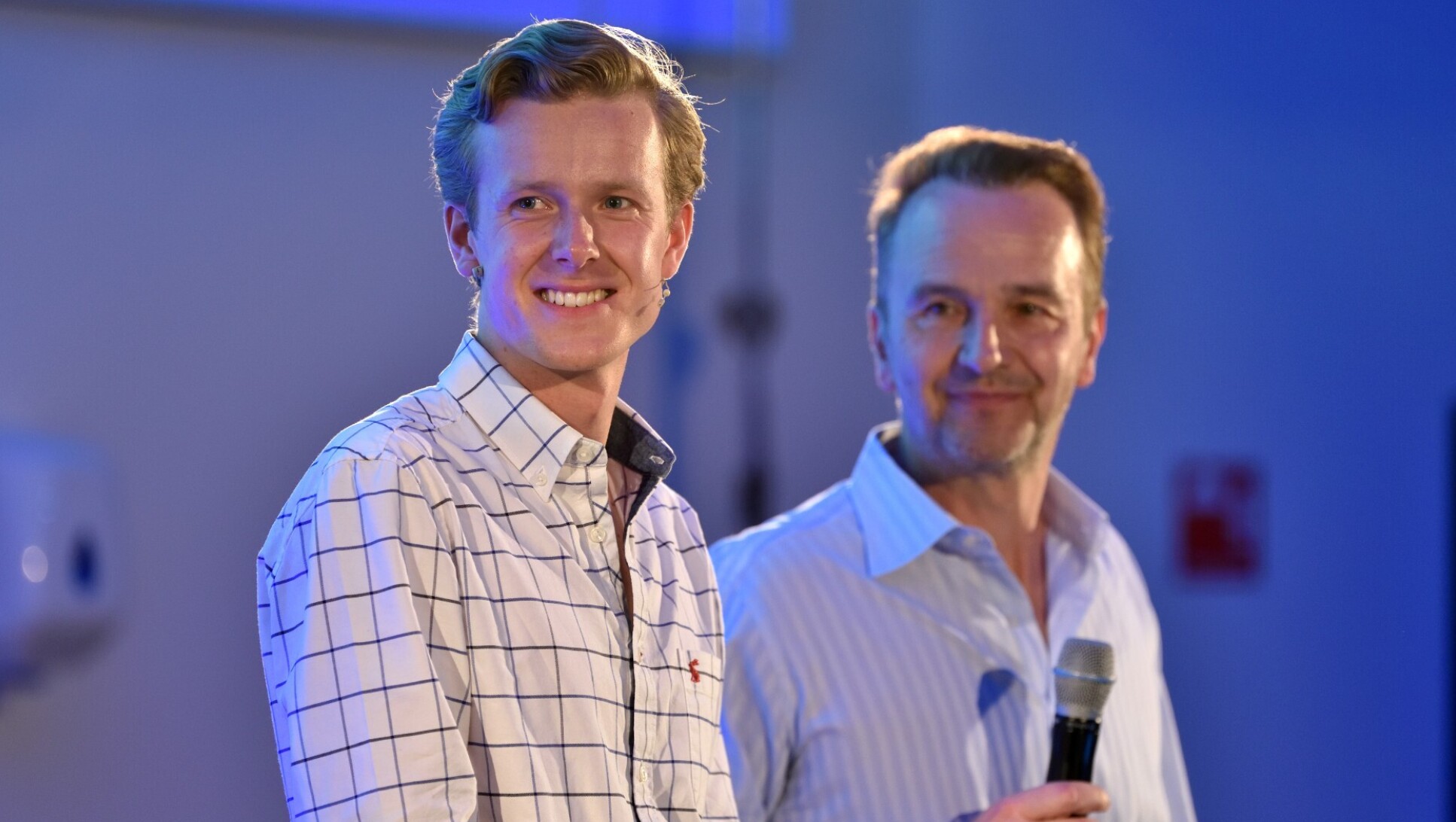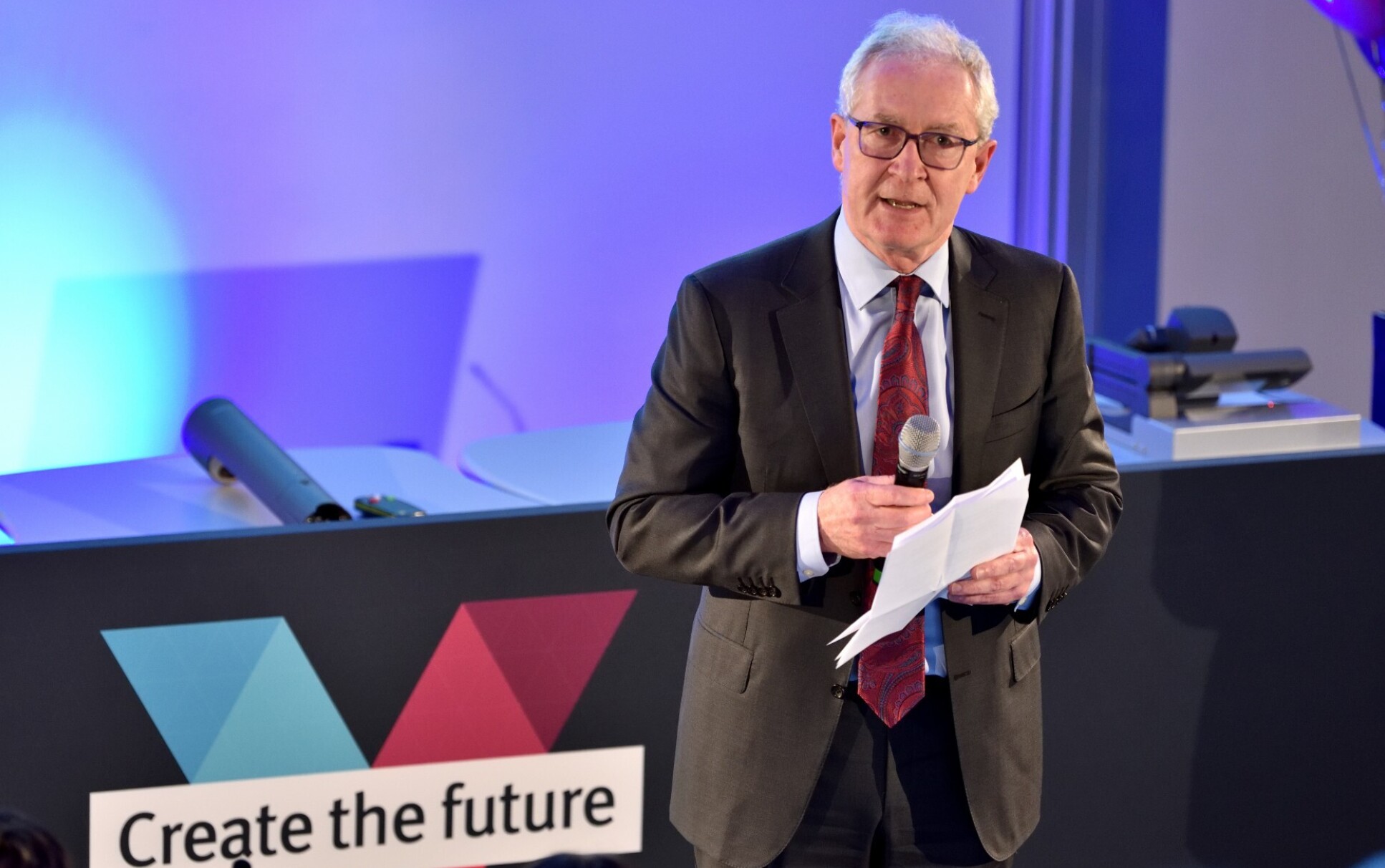Wave energy startup wins Imperial’s Venture Catalyst Challenge 2023

A startup developing wave energy converters that can be embedded under the seabed has been named as one of Imperial’s most promising new businesses.
WaveX won the Venture Catalyst Challenge 2023 for developing an innovative solution for making wave energy more reliable and less expensive. The startup was founded by Mechanical Engineering graduate Thomas Allen, Environmental graduate Will Evans, PhD student Jacob Francis, alongside Clement Puech and Olivier Bourdin.
Now in its tenth year, the Venture Catalyst Challenge (VCC) is the College’s largest entrepreneurial competition for students and alumni, providing support for innovators to develop their ideas for commercialisation. WaveX took home a total prize of £30,000 after competing against four other startups in the VCC Grand Final.
This year's competition saw 25 of the most innovative teams take part in a series of workshops, 1-to-1 coaching and meetings with experts to help them develop their ideas in five subject tracks - AI & Robotics, Creative & Consumer, Digital & Finance, Energy & Environment and Health & Wellbeing. The winner of each track was awarded £10,000 and advanced to the Grand Final to compete for the additional £20,000 top prize.
The winner of each track was awarded £10,000 and advanced to the Grand Final to compete for the additional £20,000 top prize.
This year’s judges were:
- Insiya Jafferjee, a former VCC winner and CEO of Shellworks, a leading biotech startup developing sustainable products.
- Sara Murray OBE, the founder of the financial comparison website confused.com and founder of Buddi, a personal tracking device for the elderly and vulnerable.
Harnessing wave power
Moving away from fossil fuels is a necessary step in the transition to a sustainable zero pollution world. However, current renewable energy options such as wind and solar do not provide energy regularly enough to provide a stable supply of power. Wave energy could fix this problem, but previous attempts to harness the motion of the waves for power have been too unreliable and expensive.
"Winning the VCC allows us to accelerate our progress to enable a fully Net Zero future using nature’s best practices." Thomas Allen Co-founder of WaveX
WaveX, currently part of Undaunted’s The Greenhouse climate accelerator programme, has developed energy converters that can be installed by embedding flexible structures under the seabed. This makes the converters more reliable as they are protected from storms and could significantly reduce costs, as large metallic support structures which are usually needed are replaced by the seabed itself.
WaveX co-founder Thomas Allen said: “Winning the VCC allows us to accelerate our progress to enable a fully Net Zero future using nature’s best practices. It was a great privilege to show so many people the work we are doing, and a real honour to get feedback from the judges and other attendees.
“I think the amount of discussion around sustainability across all the teams pitching at the Grand Final just shows that we are really prioritising the right things now when thinking about new, impactful business ideas. Programmes like the VCC are important platforms through which to bring this to the forefront of people’s minds.”

He added: “The missing puzzle piece for us at this stage was being able to afford time in specialist wave tank facilities to test our devices and measure their performance. This data is super important for us to be able to prove to investors and our customers that our solutions will have the impact that we claim they will and unlock the next stage of funding and development.”
“Thanks to the prize money, we can now afford time in these facilities and will be able to gather this data over the next couple of months.”
Moonshot & Social Impact prizes
Four additional awards were presented during the Grand Final to the teams who went furthest in taking a lateral and innovative approach to a significant problem with their startup, and the teams who best demonstrated a positive impact on society from their work.
Fibe were awarded the Moonshot Prize for challenging the status quo and pushing the boundaries of innovation. They received a £10,000 prize for developing textiles out of potato harvest waste.
The second Moonshot Prize of £5,000 was awarded to Nullshock - creators of an enhanced aerodynamic design that allows supersonic aviation and space launch vehicles to greatly reduce their fuel consumption by reducing shock wave drag, making space travel faster, cheaper and cleaner.
Resolut were awarded the Social Impact prize for their work towards creating a significant, positive change that addresses a pressing social challenge. They received a £10,000 prize for developing a platform where individual investors can engage with the companies they are invested in.
Neo Childcare received the second Social Impact prize of £5,000 for their healthcare platform that links mothers directly with healthcare professionals, circumventing long waiting times and reducing the risk of preventable illness in Nigeria.

The other four finalists were already winners in this year's competition, having won their themed track. WaveX won the competition’s Energy & Environment track.
The other track winners were:
AI & Robotics - Wateraware Collective has created a modular sensing unit which uses low-cost sensors and machine learning algorithms to provide accurate and uninterrupted data on pollutant levels. The device can be attached to dry bags, kayaks and paddleboards, allowing people to passively collect water quality data while doing other activities.
Creative & Consumer - PulpaTronics has developed paper-based alternatives to existing RFID tags used in supply chain and inventory management to identify and track items. The team’s design could minimise the resources required to make such tags, simplify the manufacturing process and streamline recycling.
Digital & Finance - Claimed aims to use generative artificial intelligence (AI) to improve productivity for patent attorneys. The team’s toolkit could allow attorneys to accelerate the patent drafting process and identify strategies for prosecuting office actions more quickly.
Health & Wellbeing - FlexiFit has developed the world’s first size-adjustable prosthetic cover, which could potentially save thousands of pounds for people with lower limb loss. The team’s device has a novel extension mechanism which is hidden within the body of the prosthetic cover, allowing extension at multiple stages so amputees can fit their cover to a limb of any length.
--
For full competition coverage, to meet all the teams taking part in this year’s programme and discover their innovations, visit the VCC 2023 blog.
Article text (excluding photos or graphics) © Imperial College London.
Photos and graphics subject to third party copyright used with permission or © Imperial College London.
Reporter
Conrad Duncan
Communications Division